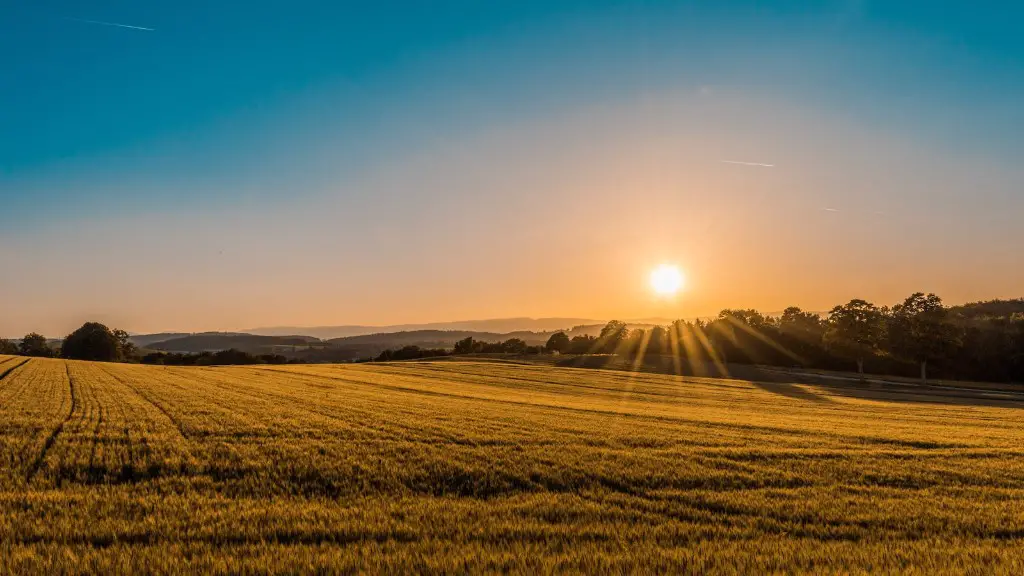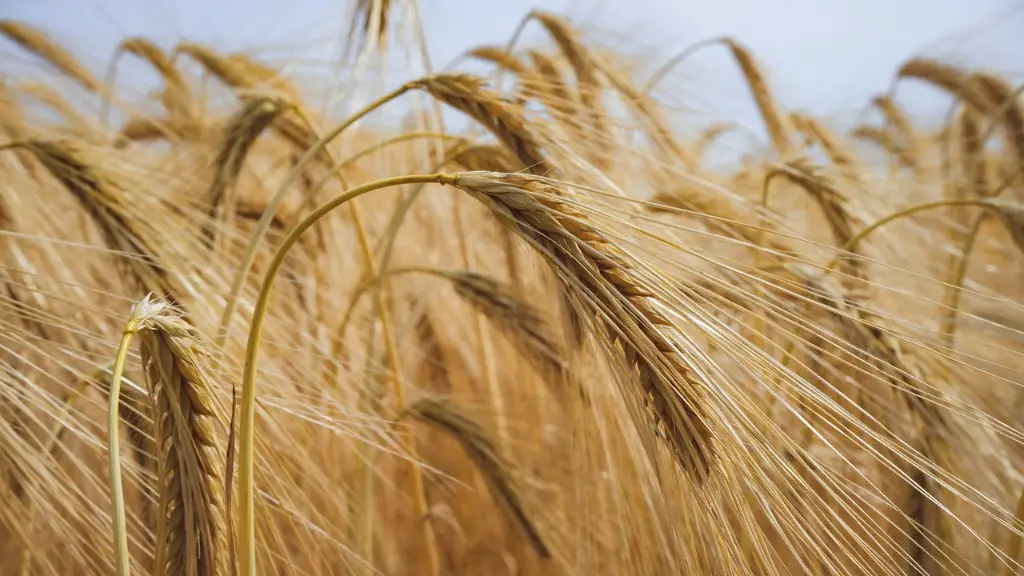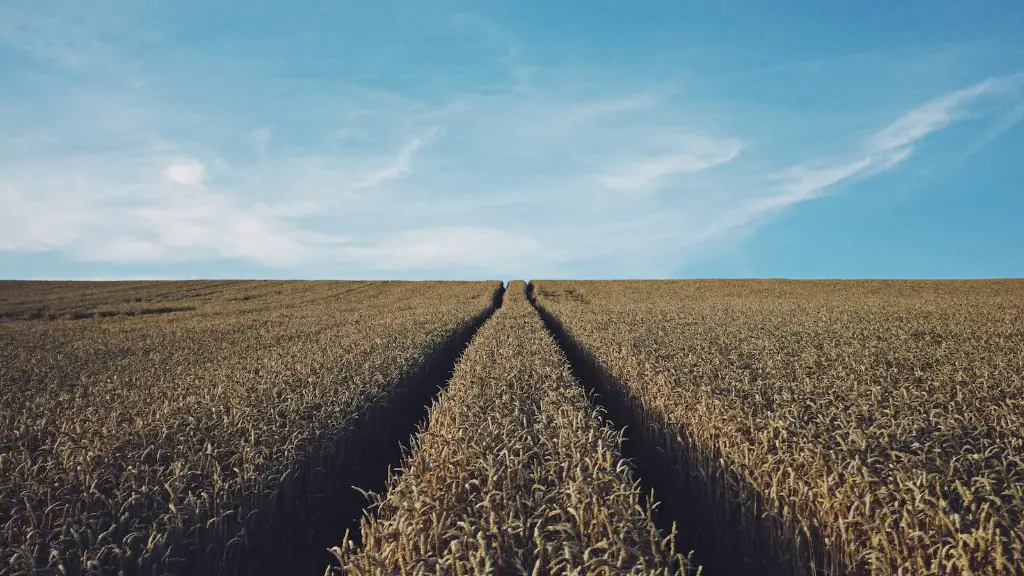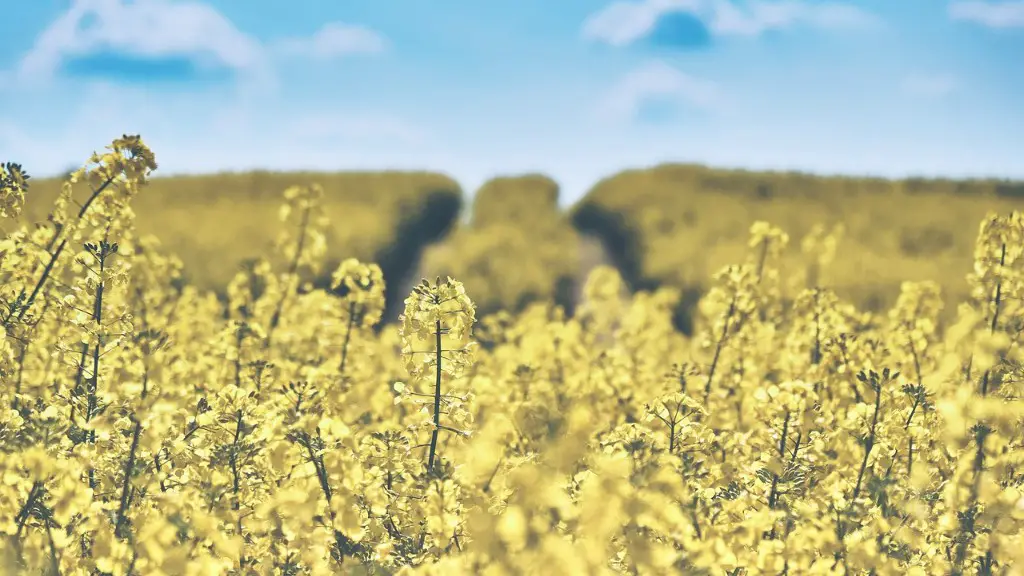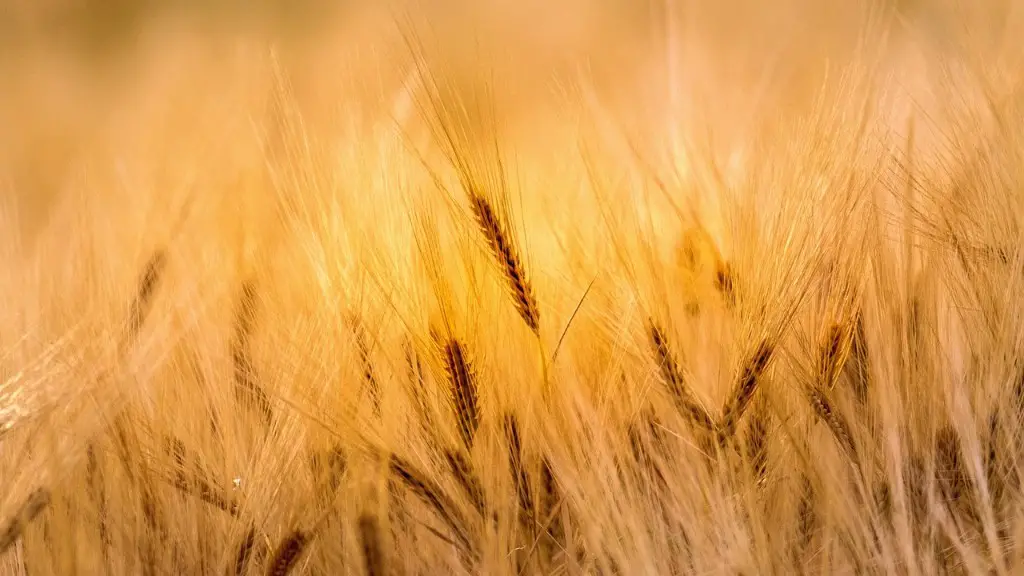The term “sustainable agriculture” has been defined in many ways, but the common thread is that sustainable agriculture is an integrated system of plant and animal production practices having a site-specific application that will last over the long term. Sustainable agriculture must address the basic needs of farmers and ranchers, including economics, agronomics, the environment, and social factors.
There is no one-size-fits-all answer to this question, as the sustainability of agriculture depends on a number of factors, including the type of agriculture being practiced, the climate and weather conditions, the availability of water and other resources, and the management practices used. However, in general, agriculture can be made more sustainable by using practices that help to conserve resources, minimize soil erosion and water pollution, and promote biodiversity.
Is agriculture currently sustainable?
It is estimated that by 2050, the world’s population will reach 9.1 billion people. This projected population growth, along with the effects of climate change, will put unprecedented pressure on our food systems. In order to meet the needs of this growing population, our food systems will have to become more efficient and sustainable.
Our current food systems are neither sustainable nor ecologically sound. They are based on monoculture crops, which are grown in huge quantities using harmful pesticides and fertilizers. These practices deplete the soil and lead to water pollution. They also require large amounts of energy to produce, transport and refrigerate the food.
To be sustainable, our food systems need to be based on agroecological principles. This means diversifying our crops, using natural fertilizers and pest control methods, and reducing our dependence on fossil fuels. Agroecological farms are more resilient to climate change and can provide a more nutritious diet than monoculture farms.
In order to make our food systems more sustainable, we need to support small-scale farmers who are using agroecological methods. We also need to eat less meat, as the livestock industry is one of the biggest contributors to climate change. By making these changes
Pesticides, fertilizers, and other toxic farm chemicals can have a negative impact on the environment. They can poison fresh water, marine ecosystems, air and soil. They also can remain in the environment for generations. Many pesticides are suspected of disrupting the hormonal systems of people and wildlife. Fertilizer run-off impacts waterways and coral reefs.
What makes agriculture sustainable
Sustainability is a key factor in ensuring the long-term viability of agriculture. It uses state-of-the-art, science-based practices that maximize productivity and profit while minimizing environmental damage. Sustainability also means the whole system is more resilient to droughts, floods, and other impacts of climate change that farmers are already seeing.
Sustainable agriculture is a type of agriculture that focuses on producing food in a way that is environmentally sustainable. This means using methods that do not damage or degrade the environment, and that are able to be sustained over the long term.
There are a number of different sustainable agriculture methods and farming practices that can be used in order to achieve this. Some of the most common include permaculture, biodynamic farming, hydroponics and aquaponics, urban agriculture, and agroforestry.
Each of these methods has its own advantages and disadvantages, and there is no one-size-fits-all solution. The best approach will vary depending on the specific circumstances and conditions of each farm or garden.
Permaculture is a type of agriculture that focuses on creating systems that are self-sufficient and require minimal input from outside sources. Permaculture systems are designed to mimic the patterns and relationships that are found in natural ecosystems.
Biodynamic farming is another type of sustainable agriculture that takes a holistic approach to food production. Biodynamic farmers work with the natural rhythms and cycles of the earth in order to create a more harmonious and balanced farm environment.
Hydroponics and aquaponics are two methods of growing plants without
Is modern agriculture unsustainable?
It’s sad to think that our modern farming practices are having a negative impact on the environment. Food production accounts for a significant portion of greenhouse gas emissions, and it’s clear that we need to find more sustainable ways to farm. Unfortunately, this is easier said than done. Hopefully, with more research and effort, we can find ways to farm more sustainably and help preserve our planet for future generations.
The use of agricultural chemicals is a major problem because they are toxic to human health and the environment. These chemicals are poisoning wildlife and pollinators, running off into water bodies, polluting land, rivers, and wetlands, and destroying important soil microbes that are critical for healthy soils. This is a major problem that needs to be addressed.
Is agriculture worst for climate change?
Factory farming is one of the key contributors to climate change, as it emits large volumes of greenhouse gases into the atmosphere. These gases trapped heat and cause the Earth’s temperature to rise, leading to a host of problems such as more extreme weather conditions, droughts and floods.
Factory farming also consumes huge amounts of water and energy, putting even more strain on the planet’s resources. It is clear that we need to find more sustainable ways of producing food if we are to protect the environment and ensure a future for generations to come.
Large-scale, conventional farming is a type of industrial agriculture that focuses on intensive single crop production, mechanization, and depends on fossil fuels, pesticides, antibiotics, and synthetic fertilizers. While this system yields high production levels, it also contributes to climate change, pollutes air and water, and depletes soil fertility. This type of farming is not sustainable in the long term, and its negative impacts are becoming increasingly evident. The good news is that there are alternatives to large-scale, conventional farming that are more sustainable and environmentally friendly.
What are the pros and cons of sustainable agriculture
There are both advantages and disadvantages to sustainable agriculture. The advantages include cost reduction, control of air and water pollution and soil erosion, biodiversity, and social equality. However, sustainable agriculture also has its fair share of downsides. For example, it takes time for farmers to carry out their farm operations.
Sustainable farming practices are those that are environmentally friendly and help to preserve the natural resources that are necessary for plant growth. The five practices that are most effective in ensuring a green and sustainable growth of vegetables and plants are permaculture, aquaponics, hydroponics, crop rotation, and polycultures.
Permaculture is a type of agriculture that focuses on creating a self-sustaining ecosystem in which plants and animals work together to support each other. Aquaponics is a type of permaculture that uses fish waste to provide nutrients for plants. Hydroponics is a type of agriculture that uses mineral-rich water instead of soil to grow plants. Crop rotation is a type of agriculture that involves growing different types of crops in different areas in order to preserve the soil and reduce the risk of pests and diseases. Polycultures are a type of agriculture that involves growing multiple crops in the same area. Trees can also be used to increase crop yields by providing shade and wind protection.
Wrapping it up, sustainable farming practices are those that are friendly to the environment and help preserve the natural resources necessary for plant growth. The five most effective sustainable farming practices are permaculture, aquaponics, hydroponics, crop
What are the disadvantages of sustainable agriculture?
One of the biggest disadvantages of sustainable agriculture is that you are unable to grow as many crops at a single time. A more sustainable approach typically leads to fewer crops in one plot, so plants don’t leach nutrients out of the soil.
Shade-grown coffee is a form of agriculture that is sustainable and imitates natural ecosystems. Trees provide resources for coffee plants such as shade, nutrients, and soil structure. Farmers are able to harvest coffee and timber from these trees. This type of agriculture is beneficial for the environment and the economy.
How can we improve sustainable agriculture
Organic farming is a type of agriculture that relies on natural processes, rather than the use of synthetic inputs, to enhance crop production. Agroforestry is a land use management system that combines trees and shrubs with crops or pastureland. Natural farming is an agricultural production system that does not involve the use of synthetic inputs, such as pesticides and fertilizers. The System of Rice Intensification (SRI) is a set of practices that can increase yields of rice while using less water and other inputs. Precision farming is a type of agriculture that uses information technology to improve the efficiency of production. Conservation agriculture is a set of management practices that aim to reduce the negative environmental impact of agriculture. Crop rotation and intercropping are two methods of diversifying crops that can help to improve soil health and reduce the risk of pests and diseases. Cover crops and mulching are two methods of protecting soil from erosion and promoting soil fertility.
There are many factors contributing to greenhouse gas emissions from agricultural livestock, but methane production is a significant source. In addition, overgrazing is a major problem that impacts environmental sustainability. In some areas, grasses are unable to regenerate due to the high demand for grazing land.
What is the opposite of sustainable agriculture?
Sustainable agriculture is a type of agriculture that focuses on producing food in a way that is environmentally sustainable. This means that sustainable agriculture uses techniques that minimize the impact on the environment, and that the food produced is healthy and nutritious.
Conventional agriculture, on the other hand, often uses techniques that are harmful to the environment, such as using pesticides and herbicides. Conventional agriculture also requires a lot of energy to produce, prepare, and transport food.
Sustainable farming is an environmentally friendly way of producing food and other crops. However, there are some disadvantages to this type of farming. One disadvantage is that sustainable farming requires more labor than traditional farming methods. This is because sustainable farmers often use manual labor instead of machinery to avoid damaging the environment. This can make sustainable farming more expensive than traditional farming. Another disadvantage of sustainable farming is that the food produced may have a shorter shelf life than food that is produced using traditional farming methods. This is because sustainable farmers often use natural methods to preserve their food, such as fermentation and drying. Finally, another disadvantage of sustainable farming is that it can take a long time to revive the fertility of the soil. This is because sustainable farmers avoid using chemicals and other synthetic products that can damage the environment.
What are the major problems in agriculture
The process of globalization has led to increased pressure on the world’s land resources. This has led to problems such as climate change, deforestation, landlessness, land fragmentation, and land degradation.
This is a really interesting topic! I’m not an expert on it, but I would love to learn more.
Warp Up
There is no easy answer to the question of whether or not agriculture is sustainable. On the one hand, agriculture is essential to human life and has been a key part of human civilization for millennia. On the other hand, modern agriculture is increasingly resource-intensive and has been linked to a number of environmental problems, such as deforestation, soil erosion, and water pollution.
There is no simple answer to the question of whether agriculture is sustainable. It is clear that agriculture is vital to human life and has played a crucial role in human history. However, it is also evident that modern agriculture is often resource-intensive and can cause a range of environmental problems. Ultimately, the sustainability of agriculture depends on the ability of farmers to adopt practices that minimize negative environmental impact while still producing enough food to meet the needs of a growing population.
There is no one-size-fits-all answer to the question of whether or not agriculture is sustainable. It depends on a number of factors, including the type of agriculture being practiced, the climate, the available resources, and the management practices used. In general, though, sustainable agriculture is possible and can provide many benefits.
